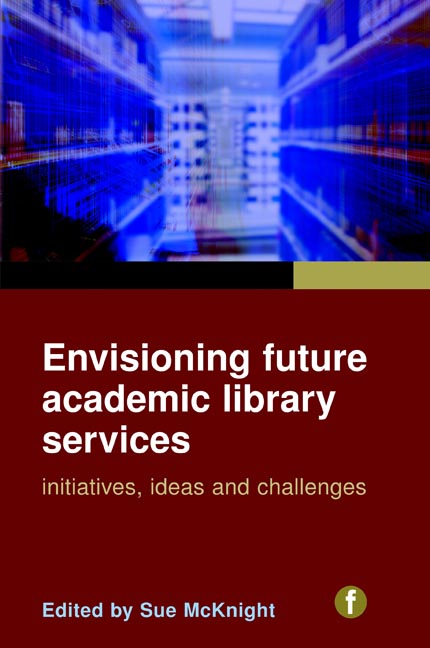Book contents
- Frontmatter
- Contents
- Foreword
- Contributors
- Introduction: We create the future!
- 1 Waiting for the barbarians: seeking solutions or awaiting answers?
- 2 The delete generation: how citizen-created content is transforming libraries
- 3 Libraries as places: challenges for the future
- 4 Web 2.0: redefining and extending the service commitment of the academic library
- 5 Second Life and libraries: boom or bust?
- 6 Some new business ideas in the HSS publishing space: what may librarians expect?
- 7 Loosely joined: the discovery and consumption of scholarly content in the digital era
- 8 Knowledge management, universities and libraries
- 9 Libraries and the management of research data
- 10 The leadership of the future
- 11 Adding value to learning and teaching
- 12 In search of the road ahead: the future of academic libraries in China
- Index
2 - The delete generation: how citizen-created content is transforming libraries
Published online by Cambridge University Press: 08 June 2018
- Frontmatter
- Contents
- Foreword
- Contributors
- Introduction: We create the future!
- 1 Waiting for the barbarians: seeking solutions or awaiting answers?
- 2 The delete generation: how citizen-created content is transforming libraries
- 3 Libraries as places: challenges for the future
- 4 Web 2.0: redefining and extending the service commitment of the academic library
- 5 Second Life and libraries: boom or bust?
- 6 Some new business ideas in the HSS publishing space: what may librarians expect?
- 7 Loosely joined: the discovery and consumption of scholarly content in the digital era
- 8 Knowledge management, universities and libraries
- 9 Libraries and the management of research data
- 10 The leadership of the future
- 11 Adding value to learning and teaching
- 12 In search of the road ahead: the future of academic libraries in China
- Index
Summary
Our world is changing
There is a grass-roots-led revolution happening in communities right around the world and it's about to get a whole lot noisier. It is a revolution challenging established knowledge systems and practices. Above all, it is shaking the very foundations of information management and professional practice in libraries throughout the world. It is a citizen-created revolution, one that puts the content creator at centre stage. Established professional practices are expanding to new horizons and opportunities. And the once sacrosanct and established body of knowledge is now much more blurred, with educators, information and communications technology (ICT) specialists and, increasingly, individuals shaping the world of librarians and libraries in an unprecedented way. Alongside this people-led revolution we have a further challenge, in that every second of every minute of the day people are deleting their history, their thoughts and arguments, which these days are invariably presented in digital form.
Given the seismic changes for the profession, this is not a time for professional complacency, nor is it a time to feel anything but excited. With the new knowledge wave sweeping the globe, it would be natural for the library profession to ask: ‘Are we prepared and engaged boldly enough to effectively capitalize on this potentially transformative opportunity?’
How well is the library profession really responding?
If we had to rate our response to these changes, a tough but fair assessment would be that the profession ‘has done quite well’ internationally. Certainly, we have responded to the Web 2.0 world, with its emphasis on social networking and citizen-created content. We know and talk about ‘widgets’ at www.en.wikipedia.org/wiki/Widget and ‘mashups’ at www.en.wikipedia.org/wiki/Mashup and we understand the value of reusing and repurposing content. While we may not all be ecstatic about the burgeoning use of Wikipedia at www.wikipedia.org as a key reference source, rather than a more traditional and authoritative source such as Britannica at www.britannica.com, we can say with some confidence that the profession generally ‘gets’ it.
- Type
- Chapter
- Information
- Envisioning Future Academic Library ServicesInitiatives, ideas and challenges, pp. 15 - 30Publisher: FacetPrint publication year: 2010

